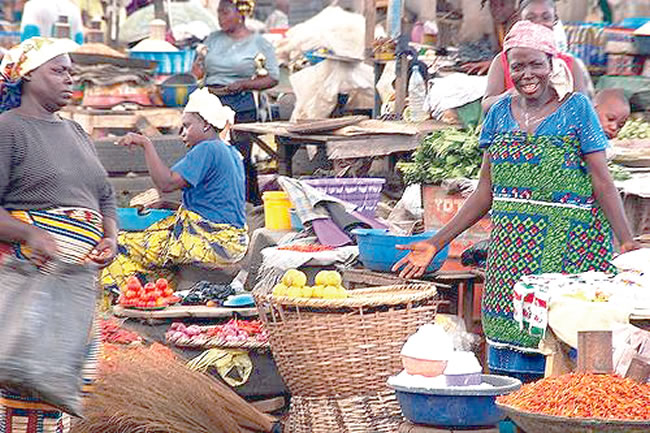As Nigeria joins the rest of the world to commemorate the 2021 World Soil Day, the Food and Agriculture of the United Nations (FAO), and experts in the agricultural sector have raised concern over some practices that salinate the soil which the said poses a major risk to food security worldwide.
This came on Saturday during the 2021 World Soil Day celebration in Abuja with the theme: “Halt Soil Salinisation, Boost Soil Productivity.”
The Director-General of FAO, Qu Dongyu, in a statement expressed worry over the unsustainable agricultural practices and the overexploitation of natural resources.
He stressed that the growing population is putting increased pressure on soils and causing alarming rates of soil degradation globally.
Dongyu said, “over 833 million hectares of soils worldwide are already salt-affected, as shown on the Global salt-affected soils map launched by FAO in October.
He noted that the estimates indicate that more than 10 per cent of cropland is salt-affected, which poses a major risk to food security worldwide.
The FAO Director-General however underlined the importance of generating reliable soil data as he announced the official launch of the Global Soil Laboratory Assessment Report.
He words: “A joint effort by 241 laboratories in 142 countries, it is led by FAO’s Global Soil Partnership (GSP) and its Global Soil Laboratory Network (GLOSOLAN) composed of more than 760 laboratories worldwide.
“Collecting soil data and building sufficient capacity in the soil laboratories of FAO Member countries is essential to manage soil-affected land resources and pave the foundation towards digital agriculture in the future.
Also, the Minister of agriculture and rural development, Dr Mohammad Mahmood Abubakar, noted that the accumulation of excessive soluble salt such as sodium, magnesium and calcium in the soil could lead to nutrient imbalance, loss of soil fertility and desertification of arable lands.
The Minister who was represented by Mrs Funke Bamidele said Nigerians must halt soil salinisation in order to boost soil productivity especially in the dry regions of the country.
Abubakar, however, called on Nigerian soil scientists to work with stakeholders to carry out focused research that would address the soil-related problems affecting agriculture and promote measures that would mitigate soil salinisation.
The Vice president, Nigeria Institute of Soil Science (NISS), Professor Geoffrey Nwaka while speaking with journalists, said farmers are not being trained properly on how to use the soil due to a lack of extension workers.
Nwaka noted that the wrong use of fertiliser, lack of knowledge of the soil, and climate change are the major challenges confronting food production in Nigeria.
He said: “We have mismanaged our soils because of lack of knowledge, what we are seeing is salinization of the soils.
“This problem of salinisation is mainly in the areas where there are no rainfalls, our farmers are not being trained properly on how to use the soil due to lack of extension workers.
“This has reduced the harvest, food production is getting less despite the fact that a lot of effort is being put into it and more people are farming.”
He further called on the need to train more extension workers who are knowledgeable in soil management to work with the farmers.
YOU SHOULD NOT MISS THESE HEADLINES FROM NIGERIAN TRIBUNE
We Have Not Had Water Supply In Months ― Abeokuta Residents
In spite of the huge investment in the water sector by the government and international organisations, water scarcity has grown to become a perennial nightmare for residents of Abeokuta, the Ogun State capital. This report x-rays the lives and experiences of residents in getting clean, potable and affordable water amidst the surge of COVID-19 cases in the state…experts raise concern experts raise concern
Selfies, video calls and Chinese documentaries: The things you’ll meet onboard Lagos-Ibadan train
The Lagos-Ibadan railway was inaugurated recently for a full paid operation by the Nigerian Railway Corporation after about a year of free test-run. Our reporter joined the train to and fro Lagos from Ibadan and tells his experience in this report…experts raise concern experts raise concern






